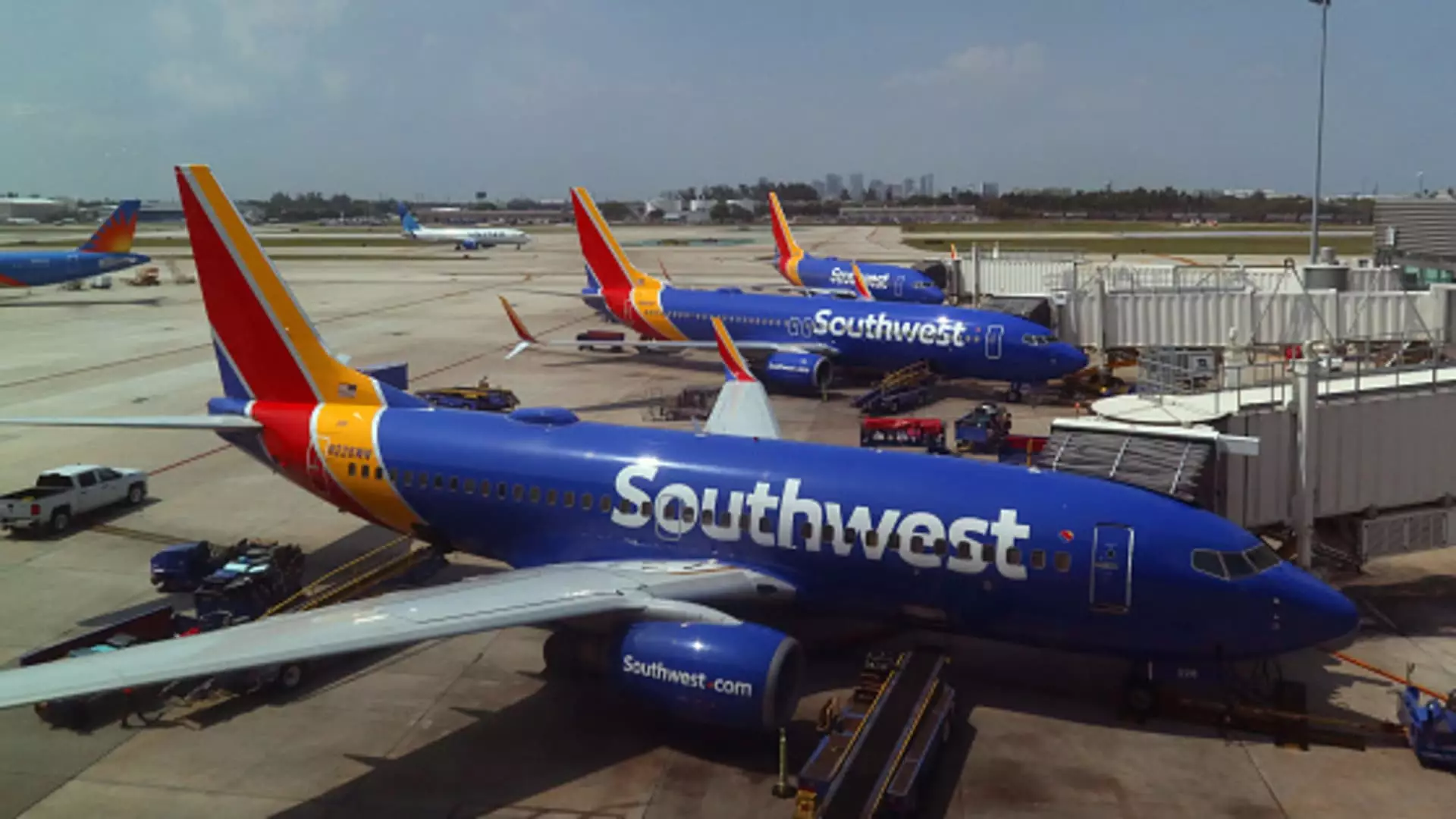Southwest Airlines recently announced a potential drop in unit revenue for the third quarter due to an oversupplied U.S. market. This oversupply has led to airlines discounting tickets during what is typically the most lucrative period of the year. Southwest indicated that unit revenue for the current quarter could decrease by as much as 2% compared to last year, while nonfuel costs could increase by up to 13%. This forecast has caused shares of Southwest to fall by more than 6% in premarket trading.
In the second quarter, Southwest Airlines saw its revenue rise by 4.5% to $7.35 billion, setting a new record for the company. However, the profit dropped by over 46% to $367 million, or 58 cents per share. Revenue per available seat mile, a key indicator of pricing power for airlines, experienced a 3.8% decline, in line with the carrier’s revised forecast. Despite these challenges, Southwest managed to exceed analysts’ expectations with adjusted earnings per share of 58 cents.
CEO Bob Jordan acknowledged that Southwest’s second-quarter performance was impacted by a combination of external and internal factors, falling short of the company’s potential. The airline is currently in discussions with Boeing for compensation, as the aircraft manufacturer struggles to deliver planes on time due to safety and manufacturing issues. Southwest has revised its delivery expectations from Boeing for the year, receiving only 20 aircraft instead of the previously forecasted number.
Overhaul and Transformational Initiatives
To address the pressure from investors and increase revenue, Southwest Airlines has initiated significant changes to its business model. The company announced the elimination of its open seating plan, opting to offer seats with extra legroom on Boeing aircraft and introducing overnight flights. These changes mark a significant shift in Southwest’s operations, aligning it more closely with traditional network carrier rivals. CEO Bob Jordan emphasized the company’s commitment to implementing both short-term revenue strategies and long-term transformational initiatives to drive growth.
Market Outlook Compared to Competitors
While Southwest Airlines faces challenges in the U.S. market, competitors like Delta Air Lines and United Airlines are anticipating a moderation in U.S. capacity starting in August. This moderation could potentially lead to higher fares for passengers as airlines adjust to the changing market dynamics. Despite the current difficulties, Southwest remains focused on navigating the challenges ahead and positioning itself for sustainable growth in the future.

